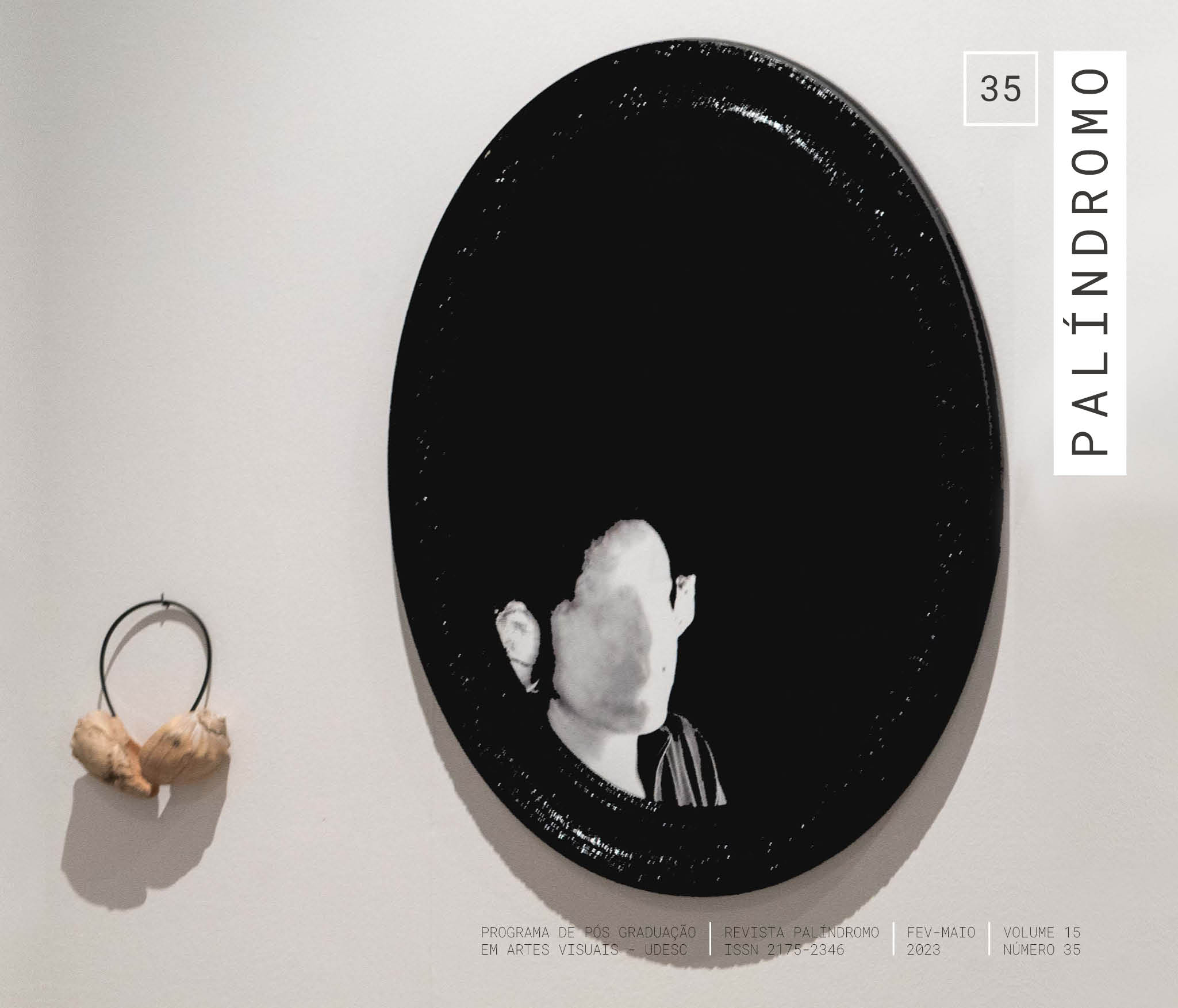A teaching to come: perspectives in fabulation
DOI:
https://doi.org/10.5965/2175234615352023095Keywords:
Fabulation, Teacher training, Being/feeling a teacher, Visual ArtsAbstract
How to build a teaching path in a narrative in which fabulation and literature break through writing, crossing not only the text, but also the experiences in contemporary art-education? Even if the search for answers is what moves a research, in this text, it moves the desire to fable in the path between being and feeling teacher. This is composed do not seek to establish truths, nor to name events, stories, teachers, and students. However, they aim to create a teaching in Visual Arts always to come. In this relationship, being a teacher marks a state in suspension, in a paused movement, while feeling a teacher aligned a movement, breaking with the linearity of training and deriving in narrative possibilities. Such things are explored with the sharing of narratives by some teachers in the State of Santa Catarina. Although located in a wide geographic location, these educators make it possible to create becomings close to the teaching practice in a classroom, whether here or there. Fabulating a teaching in arts consists of narratives, singular and collective, as it speaks to a people to come, in a minor language, always in motion. In this conception, the teachers’ speeches shared in this text do not gain a name or surname, but a space to talk about the reality of teaching, in a kind of foreign language, in such a way that it can reach the fabulation in the interstices of language.
Downloads
References
BERGSON, Henri. As duas fontes da moral e da religião. Rio de Janeiro: Zahar, 1978.
BOGUE, Ronald. Por uma teoria deleuziana da fabulação. In: AMORIM, Antonio Carlos; MARQUES, Davina; DIAS, Susana Oliveira (org.). Conexões: Deleuze e Vida e Fabulação e... Petrópolis, RJ; Brasília, DF: De Petrus; CNPq, 2011. p. 17-35.
DELEUZE, Gilles. Cinema 2: Imagem-tempo. São Paulo: Editora 34, 2018.
DELEUZE, Gilles. Crítica e clínica. 2. ed. São Paulo: Editora 34, 2011.
DELEUZE, Gilles. Lógica do sentido. São Paulo: Perspectiva, 1974.
DELEUZE, Gilles; GUATTARI, Félix. O que é a filosofia? Rio de Janeiro: Editora 34, 2010.
KOHAN, Walter. O mestre inventor: relatos de um viajante educador. Belo Horizonte: Autêntica, 2013.
MASSCHELEIN, Jan; SIMONS, Maarten. A língua da escola: alienante ou emancipadora? In: LARROSA, Jorge. Elogio da escola. Belo Horizonte: Autêntica, 2018.
NUNES, C. R.; SCHMIDLIN, E. Ser e Estar professor em modos de fabular. Revista GEARTE, [S. l.], v. 8, n. 1, 2021. DOI: 10.22456/2357-9854.105140. Disponível em: https://seer.ufrgs.br/index.php/gearte/article/view/105140. Acesso em: 10 dez. 2022.
PEREIRA, Marcos Villela. Estética da professoralidade: um estudo crítico sobre a formação do professor. Santa Maria: Ed. da UFSM, 2013.
SCHMIDLIN, Elaine. Paisagens: arte e educação na impermanência da margem. 2013. 143 p. Tese (Doutorado) – Universidade Federal de Santa Catarina, Centro de Ciências da Educação, Programa de Pós-Graduação em Educação, Florianópolis, 2013. Disponível em: http://www.bu.ufsc.br/teses/PEED1015-T.pdf.
ZORDAN, Paola. Gaia Educação: arte e filosofia da diferença. Curitiba: Appris, 2019.
ZOURABICHVILI, François. Deleuze: uma filosofia do acontecimento. São Paulo: Editora 34, 2016.
Downloads
Published
How to Cite
Issue
Section
License
Copyright (c) 2023 Carolina Ramos Nunes

This work is licensed under a Creative Commons Attribution 4.0 International License.
COPYRIGHT STATEMENT
The articles published by the magazine are free to use, intended for academic and non-commercial applications. Copyright is all assigned to the magazine. The articles whose authors are identified represent the expression from the point of view of their authors and not the official position of Palíndromo Magazine. The author (s) commits to whenever they publish material referring to the article published in Palíndromo mention this publication as follows:
This article was originally published by Palíndromo magazine in its volume (place the volume), number (place the number) in the year of (place the year) and can be accessed at: http://www.revistas.udesc.br/index.php/palindromo


